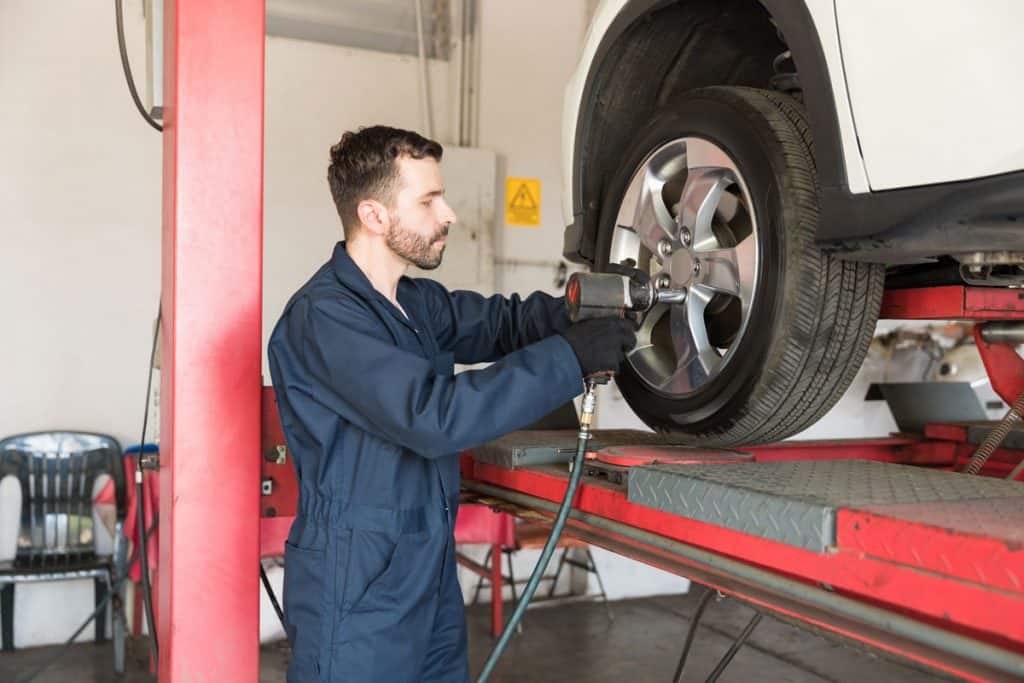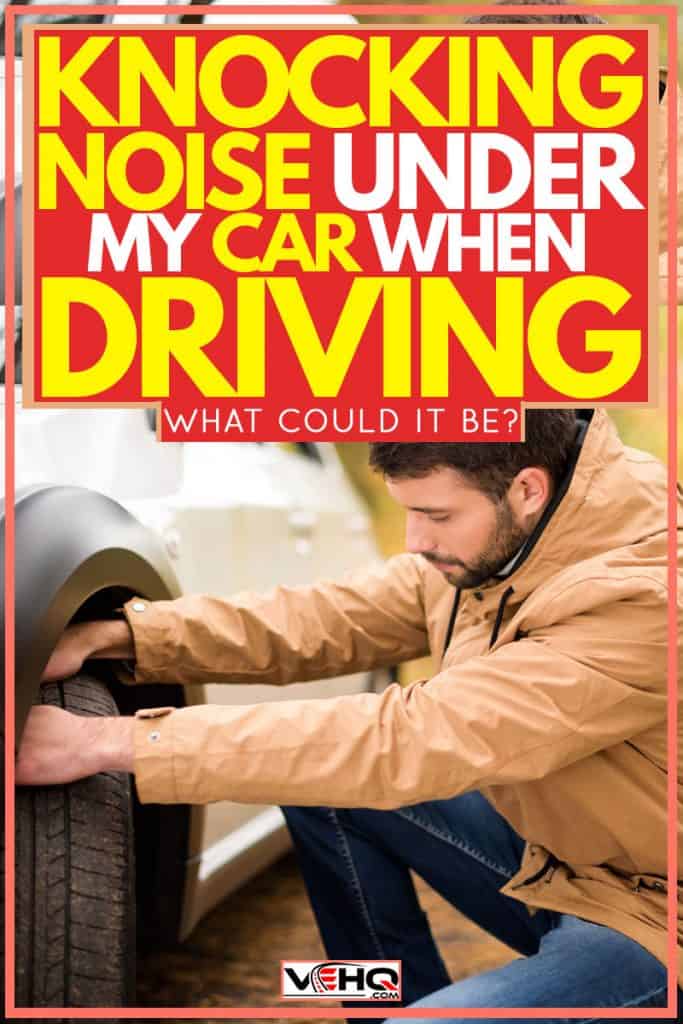 Do you experience some kind of knocking noise from underneath your vehicle? Does it happen when you're driving, braking, or even when idling? Some possible reasons are easy fixes, but some may require professional maintenance. We've done the research to figure out what might be causing this noise under your car.
Do you experience some kind of knocking noise from underneath your vehicle? Does it happen when you're driving, braking, or even when idling? Some possible reasons are easy fixes, but some may require professional maintenance. We've done the research to figure out what might be causing this noise under your car.
Below are possible reasons why you may hear knocking noises under your car:
- Misaligned tires
- Broken belt
- Bad axles
- Loose lug nuts
- Bad ball joint
- Brake problems (heard when slowing down)
- Worn wheel bearings
Please don't try to attempt a home repair for most of these problems; seek a mechanic to fix these problems as soon as they arise. Keep reading for more information about what might be causing a knocking noise under your car.
Broken Belt
A bad serpentine belt could be a culprit of knocking noises. A normally functioning belt turns smoothly when the engine runs. When the belt stretches or goes bad, you'll hear a rattling noise as you're driving.
To fix this issue, take it to a mechanic. Capitol Toyota shares the fix: the belt or the pulleys connected to it need to be replaced or adjusted. This can cost between $80 to $200 to replace.
Misaligned Tires
Keeping your tires aligned regularly is an essential part of routine car care. Experts recommend you realign your tires every 6,000 miles or every other oil change. This can vary by vehicle size or type, or how frequently you drive on harsh terrain. Additionally, you'll want to get a realignment whenever you get new tires installed. Ultimately, consult your driver's manual for the recommended realignment schedule.
Failure to realign your tires could cause safety risks and vibrations or sounds.
Causes Of Misaligned Tires
The following reasons could be why your tires are misaligned:
- General wear and tear
- Frequently driving over road obstacles such as potholes
Effects Of Misaligned Tires
According to Car From Japan, you'll start to experience vibrations. You'll either feel it from the steering wheel, or you'll hear knocking noises from underneath the car.
Next Steps to Take
If you figure out that misaligned wheels are the issue, take your car to a service center as soon as possible to get a wheel alignment done.
Loose Lug Nut
So it seemed like the knocking noise involved the tires and you took the actions above. Great, that's one problem taken care of. However, you still hear the knocking noise. What else could it be?
Take a closer look at your tires. Even if you had them replaced, realigned, or rotated, you could still hear the noise.
The reason: your tires weren't installed tightly. Look at the lug nuts. Are any of them loose? If so, there lies the problem.
Sometimes even after tire maintenance has been completed, a nut might not have been screwed in as tight as it should be. You'll hear that knocking noise occasionally while you're driving. Thankfully, this is a quick fix. Just have the nuts tightened and that problem will be solved.
Brake Problems
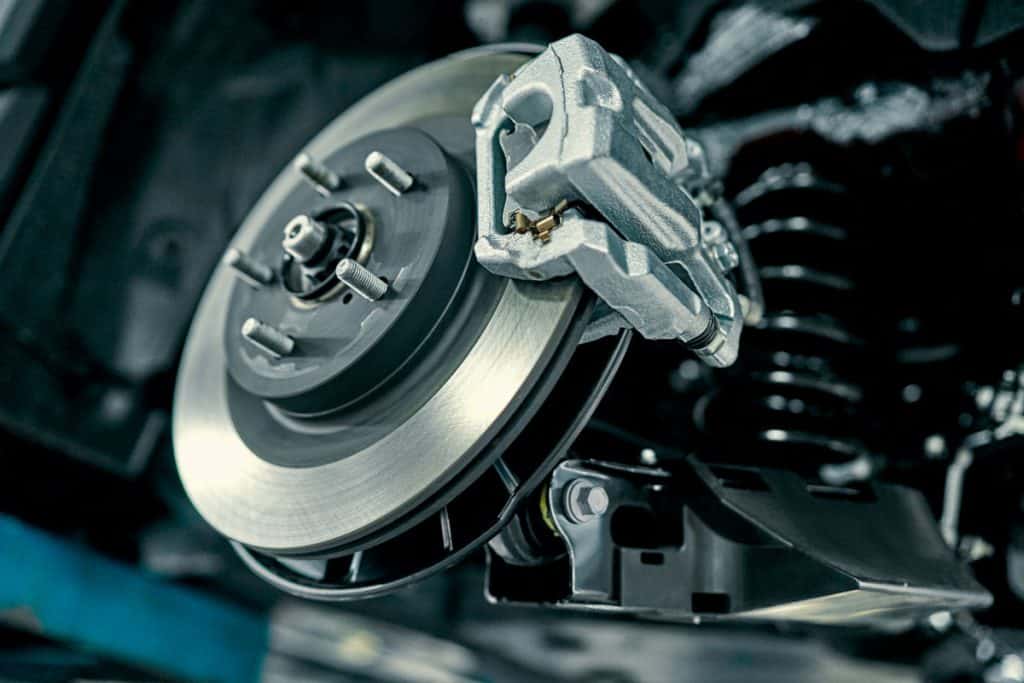 You may not experience that knocking noise when you're accelerating; you might hear it only when you're braking. Braking problems can sometimes be a culprit of the knocking sound.
You may not experience that knocking noise when you're accelerating; you might hear it only when you're braking. Braking problems can sometimes be a culprit of the knocking sound.
Chances are that if the sound comes from your brakes, there's a loose bolt or caliper somewhere. Your shock absorbers or velocity joints may also be worn out. In this instance, you'll need to have them replaced.
Go to a trusted mechanic quickly to have the brakes looked at. It's never safe to drive around with braking issues. Replacing the shock absorbers will cost you from $200 to $375 depending on the make and model of your vehicle. Constant velocity joints will cost up to $400 to replace.
Worn Wheel Bearings
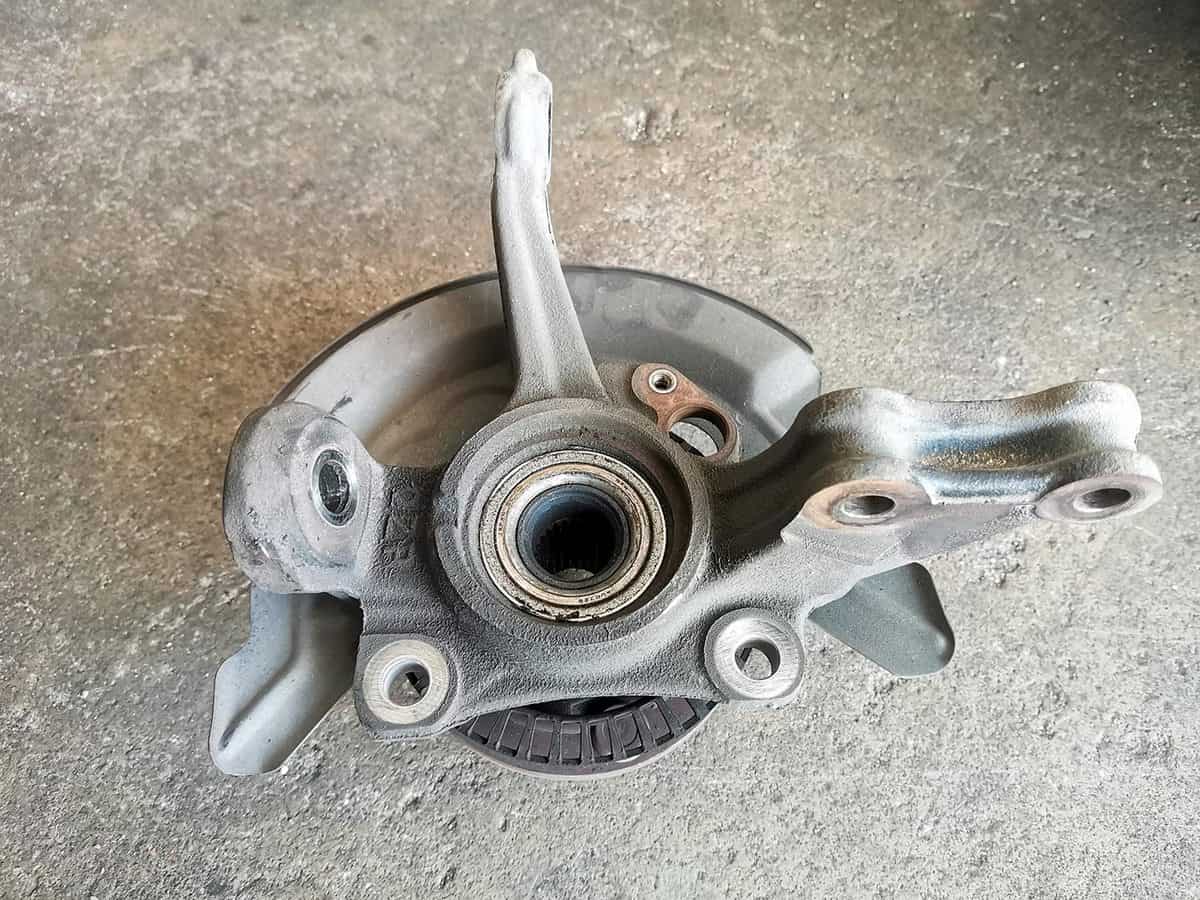
Knocking noises that come from your wheel bearing may not be noticeable at first. In the beginning, the bearing wears out and it feels like you're driving over rumble strips on the freeway. Usually, you'll notice the feeling once you reach 35 MPH.
Your car's wheel bearing gets damaged due to heat. The more you drive, the more the inner metals rub against each other. Without any proper lubrication, that heat later causes damage. Prolonged driving without getting this checked out causes major damage.
What To Do When My Wheel Bearings Go Bad?
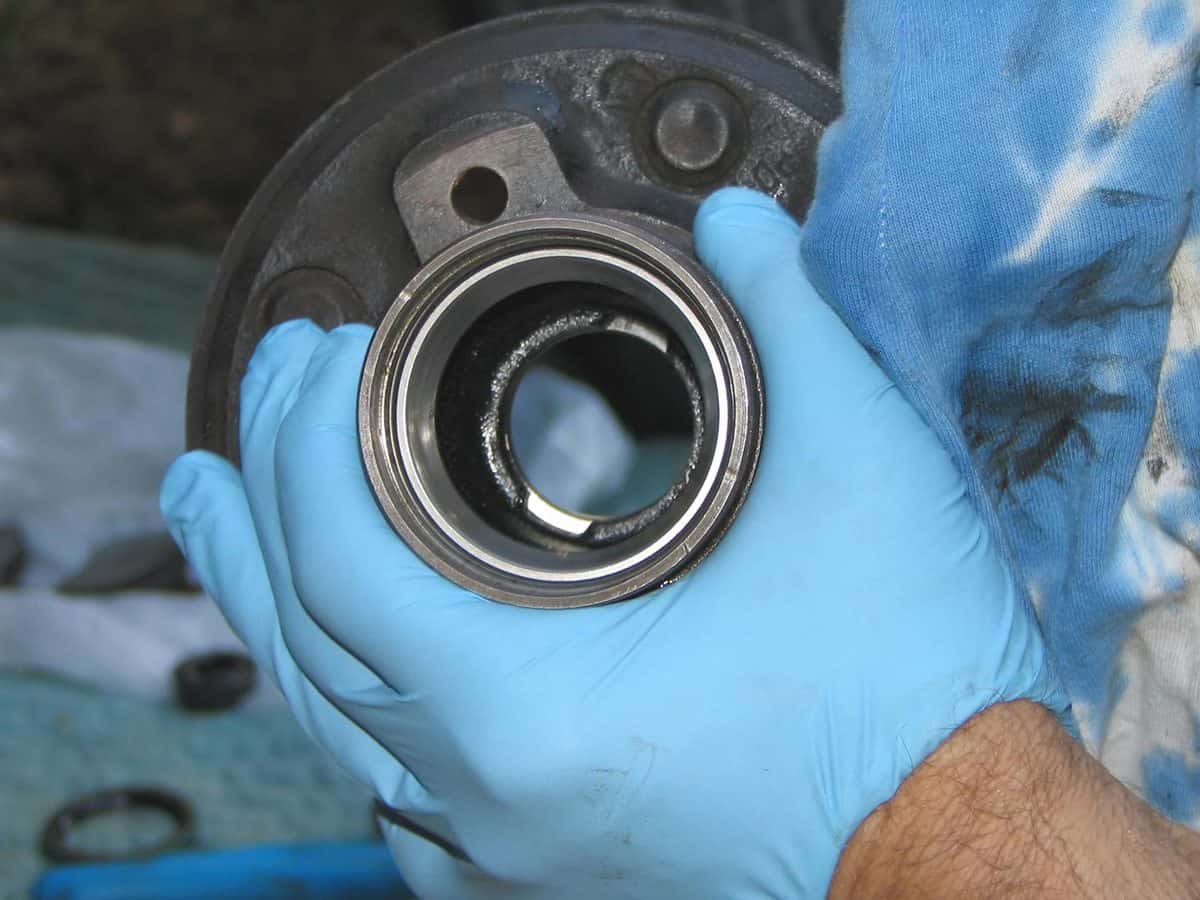
As with every other mechanical mishap, take your car to an auto technician. Luckily, you don't need to go to one immediately; you can still drive your car for a short time with a messed up wheel bearing. However, we still don't recommend doing so.
When you do try to get it replaced, have at least $400 ready for the front wheel bearing and $350 for the rear.
What Do Bad Struts Sound Like?
Car struts are similar to shock absorbers in that they help control spring and suspension movement. The difference is that struts also support the car's suspension.
When you run over too many bumps, the struts begin to wear out. Shortly after, you'll start hearing knocking noises in the front or rear tires. More specifically, you'll hear a metallic clunk the next time you accidentally drive over a deep pothole, according to Auto Blog.
What Do Bad Ball Joints Sound Like?
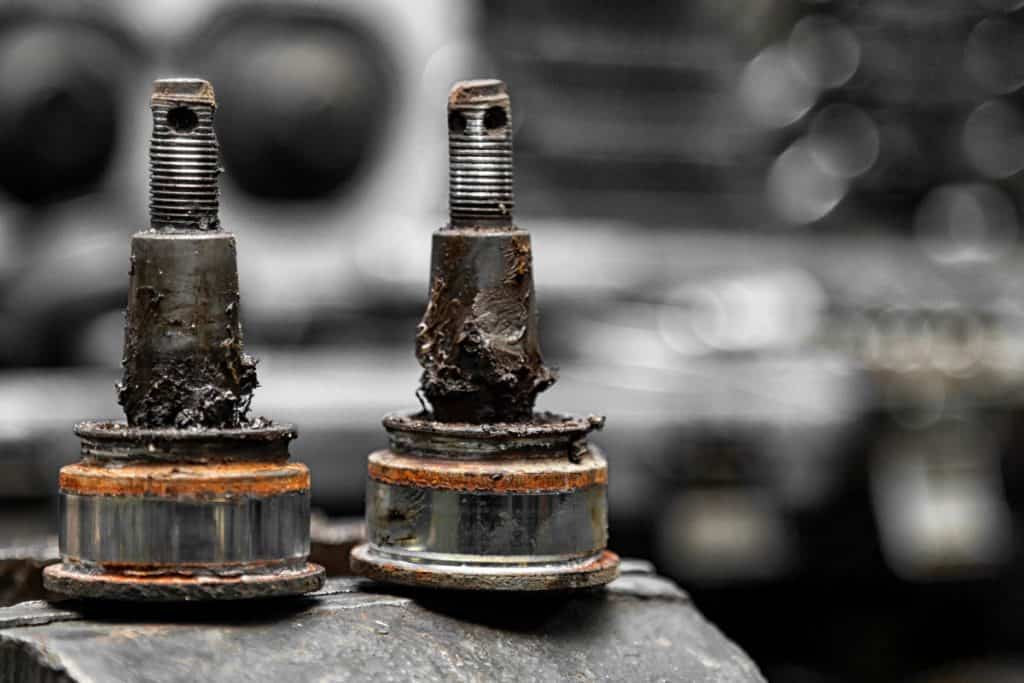 Ball joints are another component of the suspension system. When this breaks, your wheel will move in any random direction.
Ball joints are another component of the suspension system. When this breaks, your wheel will move in any random direction.
You'll then begin to hear knocking or rattling noises coming from the front of the vehicle. It's one of the main possibilities the front of your car is vibrating. This rattling is heard when driving normally or making a turn.
The louder the rattling gets, the higher chance of it completely failing. Because of that rattling, you'll start to feel it in the steering wheel as well.
The following are signs that indicate that the ball joint is going bad:
- The steering wheel moves right or left
- Front tires are wearing out faster than usual
- The vibrations occur only in the front of the vehicle
What Does A Bad Axle Sound Like?
The axle's job is to transfer power from the transmission to the wheels. If something sounds wrong with your axle, reduce driving as much and as soon as possible.
When you hear knocking noises, a good way to tell that your axle is having problems is when that knocking is a loud clicking noise. Making sharp or fast turns can escalate how severe the clicking sound. How loud that noise is will vary with your speed.
Because the axle is necessary to make your wheels turn, you'll want to get it looked at soon, as it may need to be replaced.
Can Bad Tires Make A Knocking Noise?
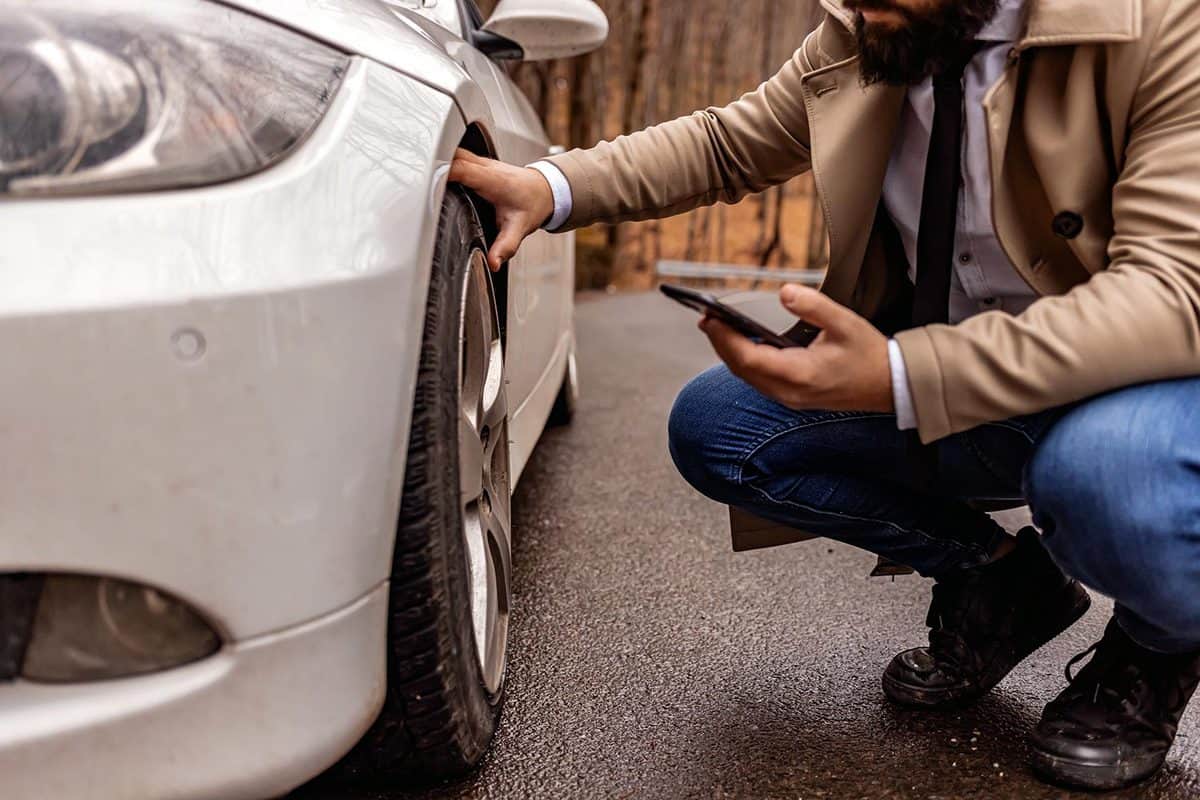
The tire itself won't be responsible for any odd sounds if they're regularly checked on.
If the wheels aren't properly aligned, rotated, or replaced when needed, that can lead to knocking sounds. Please keep up the regular maintenance for your tires. Knocking noises that come from the tires are much less expensive of a fix than the other possibilities already mentioned.
In Closing
Hopefully, you've gained enough insight to figure out what could be causing the knocking sound from under your vehicle. Once again, we urge you to visit a mechanic instead of doing at-home repairs.
If you feel something unusual coming from the engine instead of underneath the vehicle, be sure to check out this guide: Why Is My Car Engine Shaking? (And How To Fix It)

